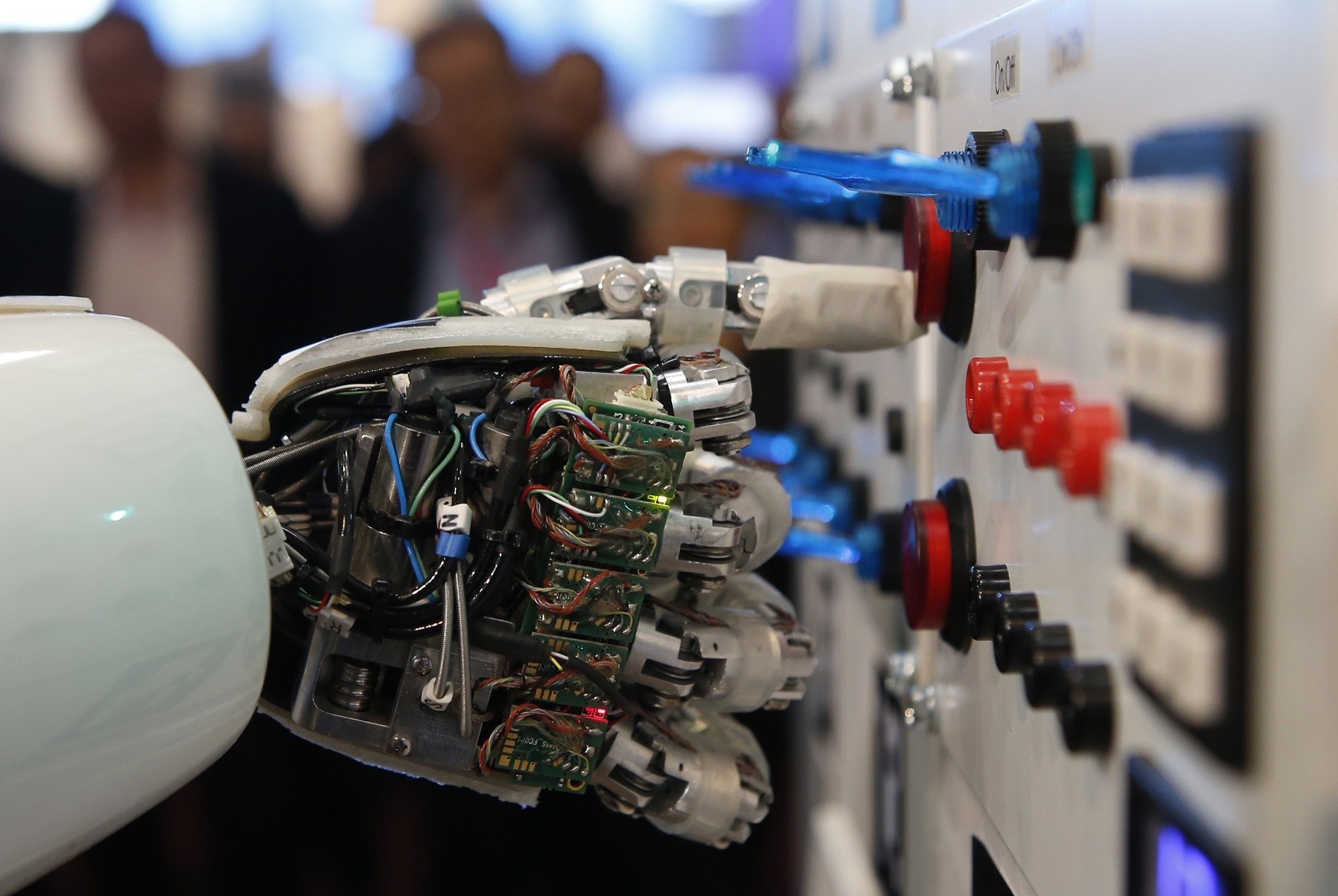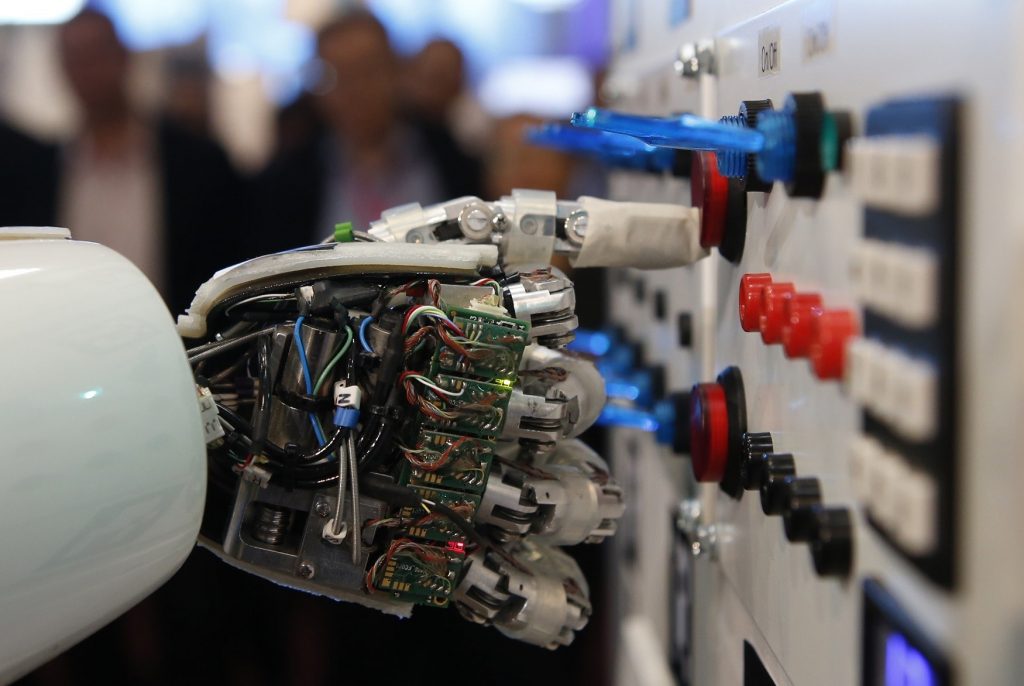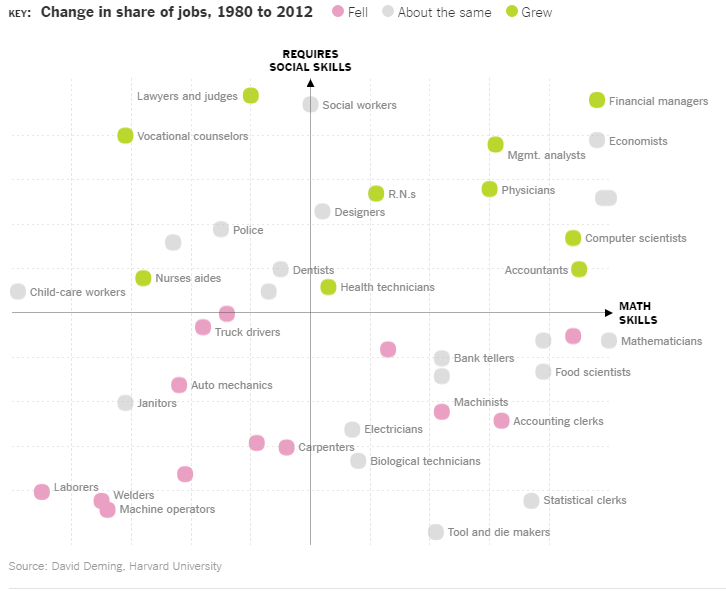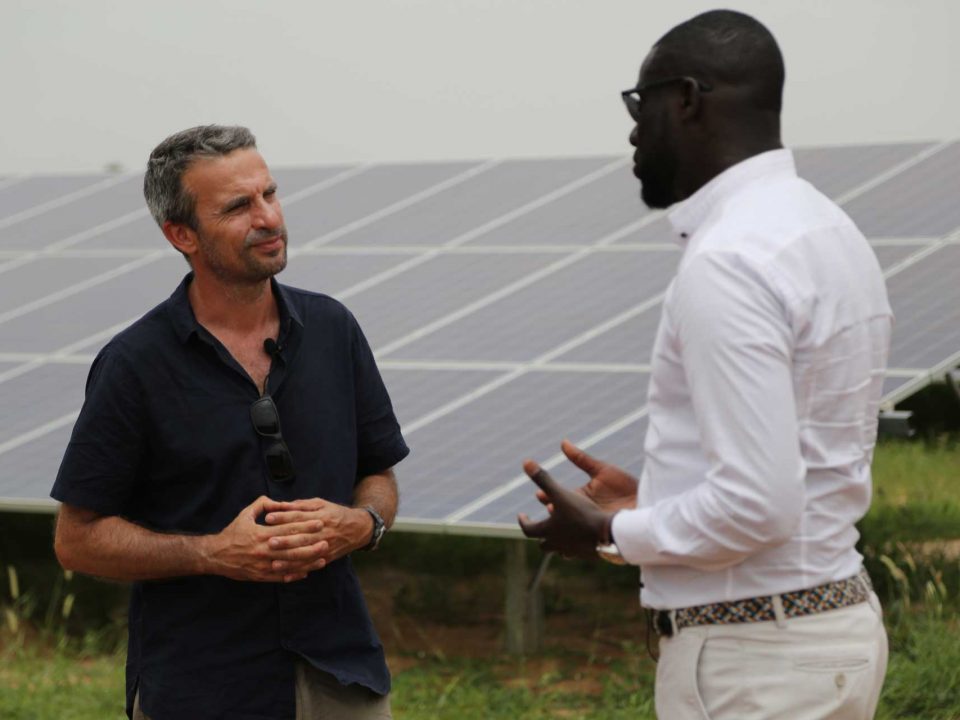
Développement numérique, entre miracle et mirage
16 décembre 2016
L’importance d’évaluer les projets de développement
4 mars 2017Les compétences et les métiers porteurs dans les technologies
L’étude sur l’avenir de l’emploi du World Economic Forum prévoit que 5 millions d’emplois seront perdus avant 2020 avec l’émergence de l’intelligence artificielle, de la robotique, la des nanotechnologies et d’autres facteurs socio-économiques qui remplacent le besoin de travailleurs humains.
La bonne nouvelle est que ces mêmes progrès technologiques créeront également 2,1 millions de nouveaux emplois. Mais les travailleurs manuels et les employés de bureau qui se retrouveront au chômage sont peu susceptibles d’avoir les compétences nécessaires pour concourir à ces nouveaux emplois…
Sans une action urgente et ciblée des gouvernements et des entreprises aujourd’hui pour favoriser l’accès à de nouvelles compétences, les inégalités et le chômage vont s’accroitre selon Klaus Schwab , Fondateur et Président exécutif du World Economic Forum.
ould a robot do your job? Millions of people who didn’t see automation coming will soon find out the painful way. The answer is a resounding yes.
The World Economic Forum’s Future of Jobs study predicts that 5 million jobs will be lost before 2020 as artificial intelligence, robotics, nanotechnology and other socio-economic factors replace the need for human workers.
The good news is that those same technological advances will also create 2.1 million new jobs. But the manual and clerical workers who find themselves out of work are unlikely to have the required skills to compete for the new roles. Most new jobs will be in more specialized areas such as computing, mathematics, architecture and engineering.
Governments and employers in every sector are being urged to retrain and re-skill workers to avoid a crisis.
“Without urgent and targeted action today, to manage the near-term transition and build a workforce with future-proof skills, governments will have to cope with ever-growing unemployment and inequality, and businesses with a shrinking consumer base,” said Klaus Schwab, Founder and Executive Chairman of the World Economic Forum.
New skills for new economies
So what skills should workers be acquiring to make sure they have value as the Fourth Industrial Revolution gathers pace? Some may be surprised to learn that skills we develop in pre-school will be valued highly.
David Deming, associate professor of education and economics at Harvard University, argues that soft skills like sharing and negotiating will be crucial. He says the modern workplace, where people move between different roles and projects, closely resembles pre-school classrooms, where we learn social skills such as empathy and cooperation.
Deming has mapped the changing needs of employers and identified key skills that will be required to thrive in the job market of the near future. Along with those soft skills, mathematical ability will be enormously beneficial.
Single-skillset jobs in decline
Deming shows that in recent years, many jobs requiring only mathematical skills have been automated. Bank tellers and statistical clerks have suffered. Roles which require predominantly social skills (childcare workers, for example) tend to be poorly paid as the supply of potential workers is very large.
The study shows that workers who successfully combine mathematical and interpersonal skills in the knowledge-based economies of the future should find many rewarding and lucrative opportunities.
Refocusing skills education
The challenge now, says Deming, is for educators to complement their teaching of technical skills like mathematics and computer science, with a focus on making sure the workers of the future have the soft skills to compete in the new jobs market.






